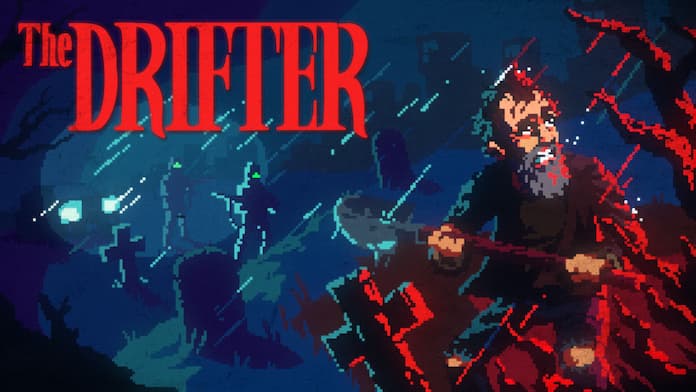Australian developer Powerhoof has just dropped a surprise indie gem with the release of The Drifter. After years of working on arcade-style titles like The Drifter and local co-op experiments, the Melbourne-based team is now diving headfirst into story-driven territory – and it works. The game launched mid-July and is already turning heads in the PC scene with its gritty pixel aesthetic and stripped-back, time-loop mystery structure.
Set in a fictional Australian city, The Drifter follows Mick Carter, a bloke returning home for a funeral, who quickly finds himself caught in something far bigger. After witnessing a brutal murder, Mick dies – only to wake up moments earlier with full memory of what happened. That’s where the loop begins, and players have to unravel the story before it catches up with them again.
The vibe is classic noir with a dusty Aussie twist. Instead of cluttered backtracking and bloated puzzles, the gameplay stays lean. Conversations evolve with each loop, small decisions matter, and the pace keeps you locked in. It’s point-and-click adventure design without the filler – and it feels fresh because of it.
A New Look for Powerhoof, Still Packed with Personality
If you know Powerhoof from Crawl or Regular Human Basketball, you probably didn’t expect them to go full thriller mode – but somehow, it clicks. The Drifter still carries their signature pixel-art charm, but this time it’s wrapped around something more sinister, more narrative-heavy, and honestly more compelling.
There’s still humour in the writing – dark, dry, and distinctly local – but the tone leans far more serious than anything the studio’s done before. The art style backs it up, with chunky, moody visuals that serve the story instead of distracting from it. It’s grimy, grounded, and unmistakably Aussie.
The Game Keeps It Simple – and That’s the Point
The Drifter doesn’t reinvent the genre, but it tightens it. There’s no bloated inventory, no click-everything-and-hope puzzles. Instead, it leans into streamlined progression, sharp dialogue, and a looping narrative structure that always keeps things moving.
Each run through the loop adds new context – some subtle, some massive – and the story builds without ever dragging. The interface is clean, the writing’s punchy, and the soundtrack fits that grim, slow-burn vibe. It’s a game that knows exactly what it wants to be: focused, atmospheric, and smart. You’re not here to wander aimlessly – you’re here to figure out what the hell just happened.
Story and Pacing That Don’t Waste Your Time
One of the strongest things The Drifter does is get to the bloody point. No wandering around for hours, clicking on every bin in the background. The puzzles are tight, the objectives are clear, and the time loop mechanic keeps the stakes high without getting repetitive.
Mick isn’t some overpowered hero – he’s just a guy trying to piece together a murder while reality keeps folding in on itself. The game gives you just enough tools to feel clever, but not so many that you can brute-force your way through. It respects your time and your brain.
A Win for the Aussie Indie Scene
This isn’t just a win for Powerhoof – it’s a win for the broader Aussie dev scene. The Drifter proves that local studios can push out high-quality narrative games that don’t try to mimic Hollywood or Japan. It feels authentically Australian without relying on clichés, and that alone sets it apart.
It also shows that there’s room in the indie space for short-form, replayable thrillers that focus on tone and pacing rather than padding. You can knock this one out in a sitting or two – but you’ll want to replay it just to catch what you missed, trust us on that one!

